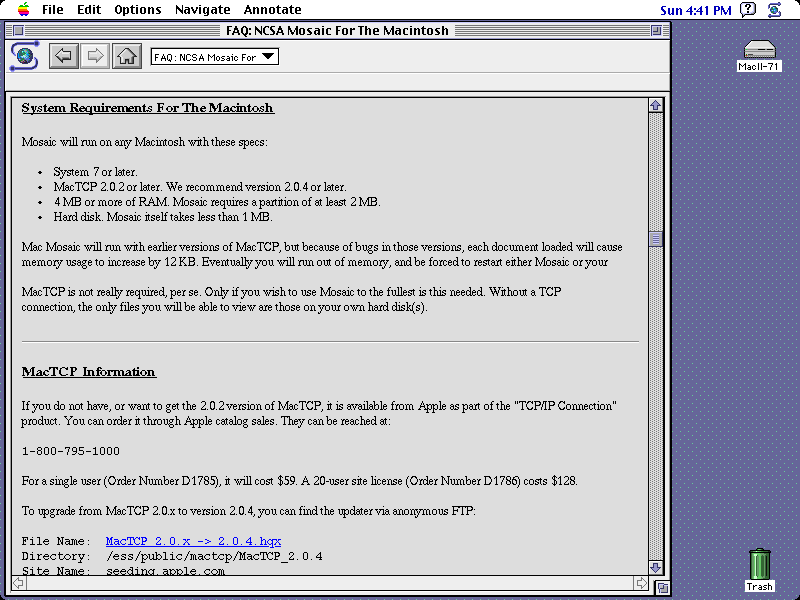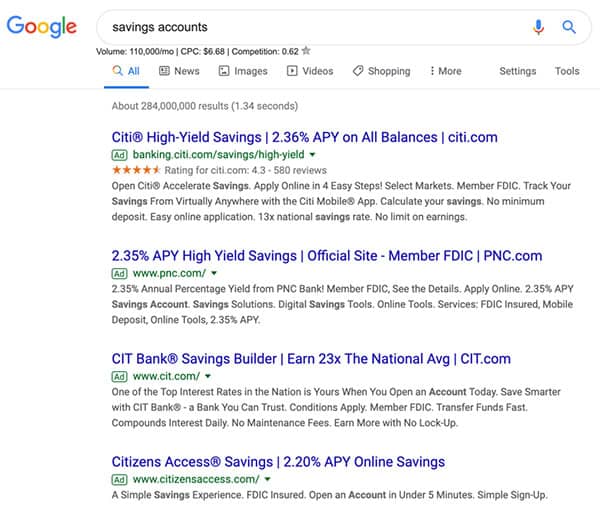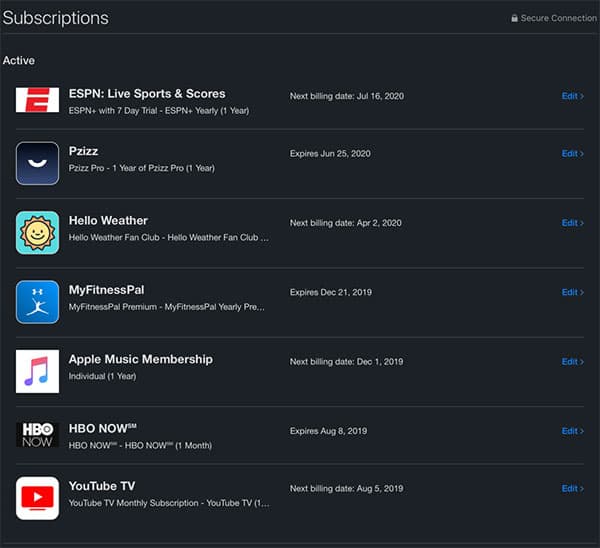Death by a thousand cuts
I’ve been on the internet for a long, long time.
Via local Bulletin Board Systems, I started reading USENET newsgroups — mostly Star Trek and comic book and computer game stuff — during college in the late 1980s. I got sucked into the world of MUDs. Soon after graduating, I heard about this new thing called the World Wide Web, so I installed Mosaic on my Macintosh SE.

Before long, I taught myself HTML and built my first website. Eventually, in 1997, I started my first blog — back before blog was even a word!
I was drawn to the web (and the internet) in part because it seemed so egalitarian. Anyone could start a website about anything, and as long as they produced great stuff and shared it, people would read. I also liked the fact that almost everything was free. It didn’t cost anything (besides your $19.95 monthly dial-up service) to access any of this information. The early web was a de facto sharing economy.
Best of all? The web was a wide open space, a blank slate, a platform free from dominance by mainstream media. Little people like me could have a voice.
None of this lasted long.
The Monetization of the Web
Soon, banner ads came along. I hated banner ads when they first appeared. “My site will never have banner ads,” I told my friends. (This was my first real lesson that you should never say never. My friends have been giving me grief about this for more than fifteen years!)
In 1998, Google arrived and changed everything. Until that point, web search was a miserable experience. It wasn’t very good and it was overly monetized. Google was the opposite. It was amazing and had no monetization at all.
Hahahahahahahaha. How things have changed. Today, Google is all about ads. And using it is more and more a miserable experience. Look at this mess:

How long until Google has transformed itself into AltaVista?
In time, the mainstream media realized that the web wasn’t going anywhere. By the early 2000s, they were treating it as an important part of their operations. By the early 2010s, the web had become the most important part of most media companies’ platforms. And if it hadn’t, those companies would soon be dead.
Meanwhile, two parallel (but related) trends developed.
- First, there was the rise of “software as a service” (Saas). In the olden days — 1995, say — when you wanted a computer program, you went down to Circuit City and bought it. You paid for it once and you owned it forever. As “web apps” became a thing, companies shifted from one-time payments to a subscription model. Today, even big companies like Microsoft and Adobe have adopted the practice of continually charging for their products. (And if they don’t use a subscription model, they often “sunset” their software, which is essentially the same damn thing.)
- Second, forward-thinking sites and companies learned there was money to be made by disrupting existing business models. Netflix is a great example. Founded in 1997, this company has single-handedly destroyed multiple industries, most notably retail video. And, eventually, Netflix began to disrupt the monolithic television industry itself! Initially, this was beneficial to consumers. Now, in 2019, it’s become apparent that oops, nope it’s not. (See also.)
Twenty-five years ago, when the web was young, it was all about free. Anyone who could afford a computer and a $19.95/month dial-up connection was free to create and publish whatever they wanted — and free to consume what other people had created. It was like some sort of digital utopia.
Death by a Thousand Cuts
Today, the web is most decidedly not free. And it’s getting less free with every passing month. Let’s be honest: More and more, life online is expensive. It’s like death by a thousand cuts.
This morning as I was pulling together the latest edition of the GRS Insider — this site’s weekly email — I experienced the proverbial straw that broke the camel’s back. And that prompted this article. (And delayed the newsletter haha.)
- First, I tried to read a New York Times article: “Health facts aren’t enough. Should persuasion become a priority?” But I couldn’t. I’ve already read one article from the NYT this month: “D.I.Y. Private Equity Is Luring Small Investors”. It used to be that the NYT was free. Then they instituted a limit on article consumption unless you subscribed, but it was a limit I could live with (something like ten articles per month). Besides, I could bypass the paywall with my browser’s incognito mode. Then they got wise to incognito mode, which is fair enough. Now, apparently, you get one free article per month.
- Next, I wanted to read this article: “Families Go Deep in Debt to Stay in the Middle Class”. I mean, I really want to read that article. But I can’t. It’s at The Wall Street Journal and the WSJ has been locked behind a paywall for years.
Crashing into paywalls is a daily occurence now. No — it’s an hourly occurrence. I follow a promising link and bam I’m brought up short because I have to pay to access the article. This happens at newspapers, magazines, and even internet-only sites. It makes me grateful for the publications that produce terrific content and still provide it for free. (One example? I find that I’m frequently drawn to articles at The Atlantic. They provide top-notch quality without asking for payment. But for how long?)
Meanwhile, the subscription software model is starting to take its toll too. I completely understand that some apps and services require subscriptions in order to function properly. I pay a monthly fee to have Get Rich Slowly hosted on a webserver. That makes sense.
- It does not make sense to me that some of the tools we use to build Get Rich Slowly require monthly (or yearly) subscriptions. There’s no ongoing maintenance. There’s no draw on the vendor’s resources.
- It does not make sense to me that my favorite weather app for the iPhone requires an annual subscription. In fact, it’s insane. (Yet I still pay it.)
- It does not make sense to my that Pzizz, a sleep tool that I’ve used for over a decade, moved from standalone pricing to subscription pricing. (And hey, Pzizz people, how many times do I have to pay for your product before you give me lifetime access? Because I’ve paid three or four times already.)
Generally speaking, SaaS and subscription plans aren’t necessary — they’re just profitable for the companies that use them. And as long as we keep paying, they’ll stick to the model.

All Good Things Must Come to an End
The “cut” that’s really going to mess with people’s minds? The upcoming high price of television.
When Netflix and Hulu and similar companies came along, they offered low-cost alternatives to cable. Cord cutting became an act of frugality. I ditched cable television in 2007 and have never looked back. Until now.
Now, big media companies have recognized that they too can get on the act. They too can inflict one of the thousand cuts.
- CBS was quick on the draw. Want to watch the latest Star Trek shows? No Netflix for you! You have to pay $10 per month for CBS All Access — or $6 per month if you’re willing to put up with commercials.
- Disney is a heavy hitter and they want to get in on the act. Disney+ — coming November 12th — will cost $8 per month. Want to watch the latest Marvel and Star Wars shows? Want to watch Disney and Pixar movies? This is your only option.
- By far, the most popular show on Netflix is NBC’s The Office, which accounts for a mind-boggling 7% of all Netflix viewing in the U.S. NBC knows a golden goose when it sees one. When its current deal with Netflix expires, it’s yanking The Office and using it as a tent pole to launch its own subscription service.
Meanwhile, Netflix and Hulu and Amazon all offer their own original programming. (At least the latter is free for folks who pay for Prime, which is nearly one-third of the United States. Holy shit!) Apple will soon get in on the game and they’re using big names to draw viewers: Oprah Winfrey, Steven Spielberg, Reese Witherspoon, Jennifer Aniston, and more.
Streaming used to be a cheaper alternative to cable television. As Consumer Reports notes, these days it’s a toss-up. And soon, streaming is likely to be the more expensive option.
Note: The one huge advantage to this proliferation of options? Users can pick and choose which content they subscribe to. For years (or decades), folks had been asking for a la carte pricing for cable channels. Well, I guess now we have it.
No Free Lunch
To provide supporting evidence for this article, I started to make a list of all of the software subscriptions I have, my software that’s being “sunsetted” and needs to be upgraded (Quickbooks 2016 just notified me yesterday that it’s no longer supported), the most common paywalls I encounter, and the television-related payments I make. I gave up. It’s a doable thing, but it’d take too much time right now. It’s a project for another day.
I know I sound like a cranky old man (again!), but I’ve had enough. I’m mad as hell and I’m not going to take this anymore! Except that I probably am.
“Don’t you expect to pay for services?” Kim asked me as I bitched to her this morning. “How does anybody run a business if it’s free? In your mind, their business model should be to not charge the customer?”
Okay, fair point. I don’t want to be taken for a choosing beggar.
As somebody who runs a website himself and knows how much it costs (in terms of time and money) just to maintain my tiny corner of the web, I absolutely do not begrudge anyone the desire to make money.
And, in fact, my biggest challenge since repurchasing Get Rich Slowly two years ago has been balancing my desire to provide excellent information without destroying the user experience with monetization. It’s a delicate balance, one that I’m not sure I’m achieving. (But hey, I’m working on it!)
My frustration is that there are just so many companies extracting a pound of flesh from me. It’s too much.
Yes, I realize most (of not all) of these expenses are voluntary. Yes, I realize this is capitalism in action. Yes, I realize there are often free (or cheaper) options. Yes, I realize we can’t reset the internet to 1995. Believe me: I’ve been thinking about this issue for years now. I understand all of this stuff. But I don’t like it.
In the end, my solution recently has been to KonMari my digital life. I’ve removed most of the apps from my iPhone and iPad, opting to cut those with subscription fees first. When possible, choose software with a one-time fee instead of an ongoing subscription. I try to steer clear of sites with paywalls. I killed Hulu. (But then Kim promptly joined.) Even though I love Star Trek and the Marvel Universe, I refuse to pay for CBS All Access and Disney+. I never will.
But then, I was never going to have banner ads on my website either, was I?
Become A Money Boss And Join 15,000 Others
Subscribe to the GRS Insider (FREE) and we’ll give you a copy of the Money Boss Manifesto (also FREE)
